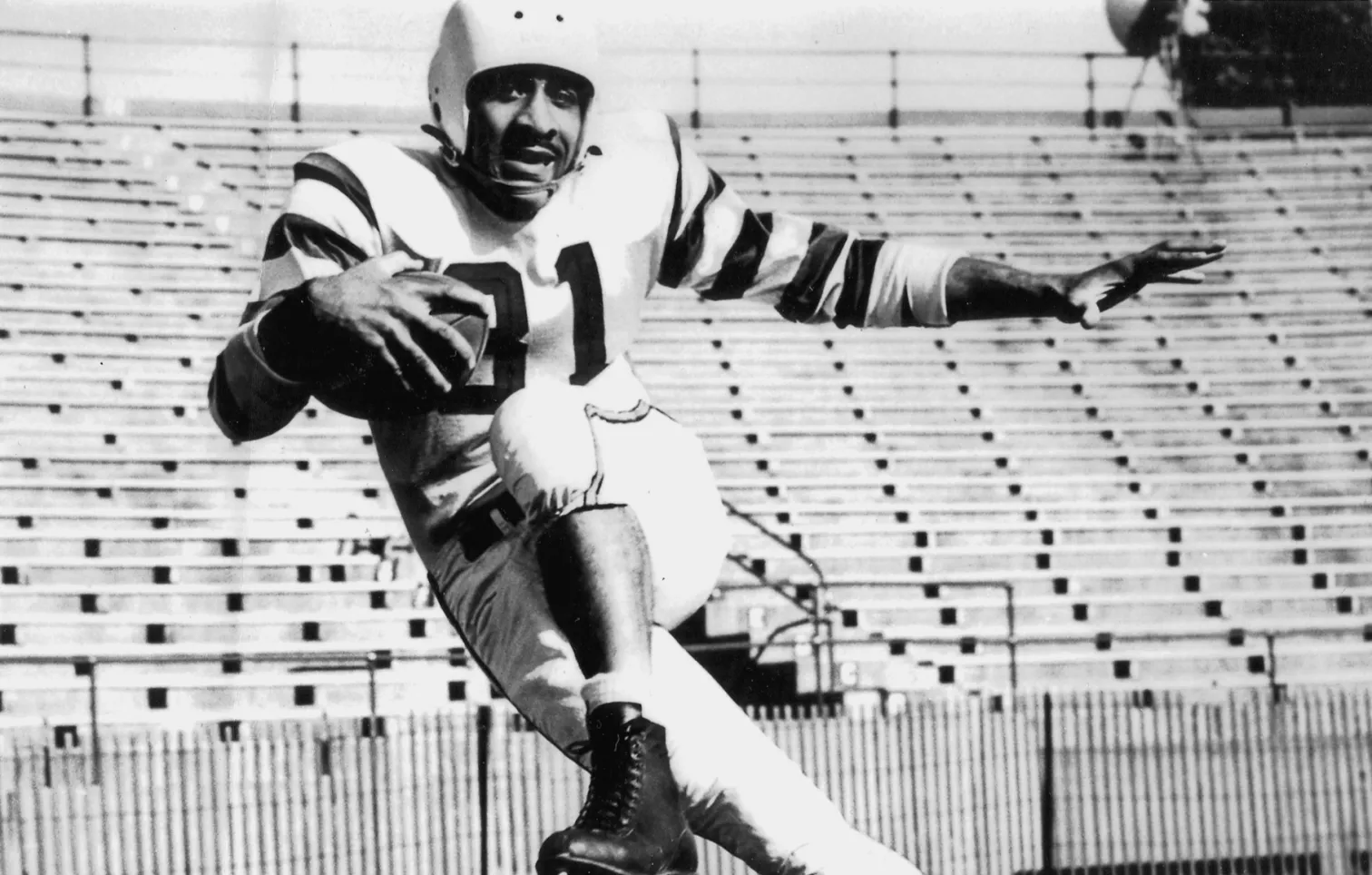Knowledge is power is the motto of Downsview Secondary School. And, it’s the sharing of knowledge that empowers many of the Black community initiatives in the neighbourhood.

Downsview is home to a large Black Canadian population. According to the 2016 census, the Black community comprises more than 15% of Downsview residents. The majority of this population is originally from the Caribbean, largely Jamaica, and includes immigrants from Africa, particularly Somalia, Ethiopia, Ghana, and Nigeria. The majority of Caribbean immigration to Canada took place in the 1960s and '70s.
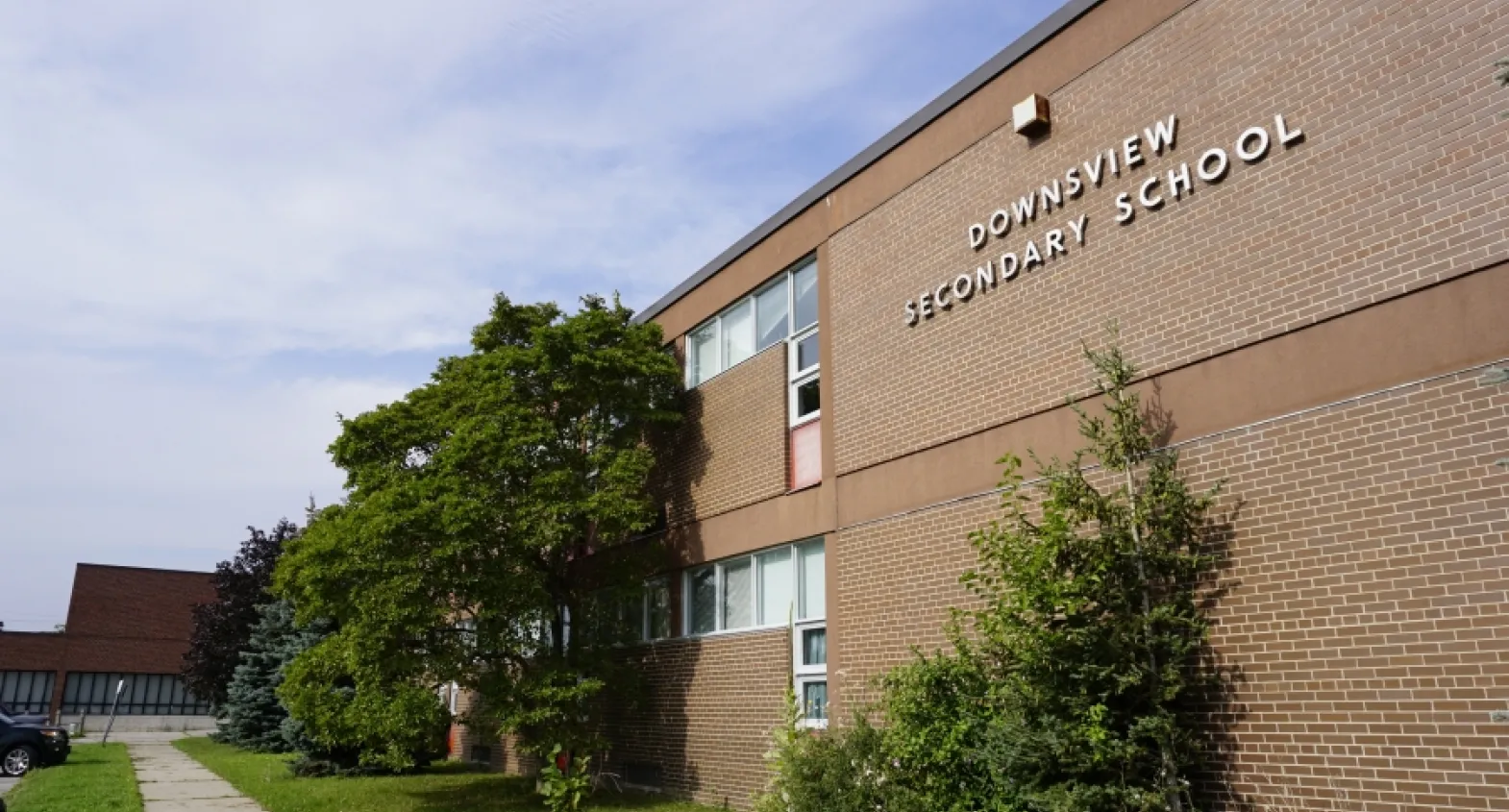
With Jamaica's independence in 1962 as an impetus, Jamaicans living in Toronto at that time formed the Jamaican-Canadians Association advocating to improve the well‐being and equity of Jamaican, Caribbean, and African‐Canadian communities.
One of its most important roles is a robust scholarship program for students from the Caribbean-African community pursuing post-secondary education at Ontario colleges and universities. Started in 2002, the program provides more than 30 scholarships each year in a diverse range of studies, including business, the arts, technology, computer science, and health sciences.
Downsview is also home to a unique learning opportunity for young Black Canadians. The Africentric Alternative School opened in 2009 in response to the community advocating for more Black teachers and course material. A similar curriculum, using African-centered sources of knowledge and perspectives, was introduced for high school students in 2013 at Downsview Secondary School.
One teacher, who worked at Downsview Secondary School long before Africentric studies, was African-American and Toronto Argonaut veteran, Ulysses Curtis, aka Crazy Legs.

Curtis served in the US military during WWII before returning to the United States to complete a post-secondary degree in Florida. Here his athletic abilities – in several sports – caught the eye of the Toronto Argonauts football club. His rookie season in 1950 was remarkable. The running back could catch the ball and run it down the gridiron, he was practically unstoppable on the field. His powerful legs and unusual knees-high running style earned him the nickname, Crazy Legs.
Ulysses Curtis was one of the first Black players on the Argonauts, and his name is still in the league record books. According to an obituary in the Globe & Mail, he set numerous records for rushing yards and touchdowns, including seven Grey Cup touchdowns and two Grey Cup victories. When his football career ended, Curtis chose to stay in Toronto. He became a Canadian citizen and taught in the public school system for more than 30 years, including as a guidance counsellor at Downsview Secondary School, where he also coached the Mustangs senior boy's football team.
But education doesn't only happen in a school classroom. Downsview Park, a federally-owned green space in the heart of the neighbourhood, provides space and resources for numerous green initiatives and educational programs and is currently home field for the Black Farmers & Growers Collective.
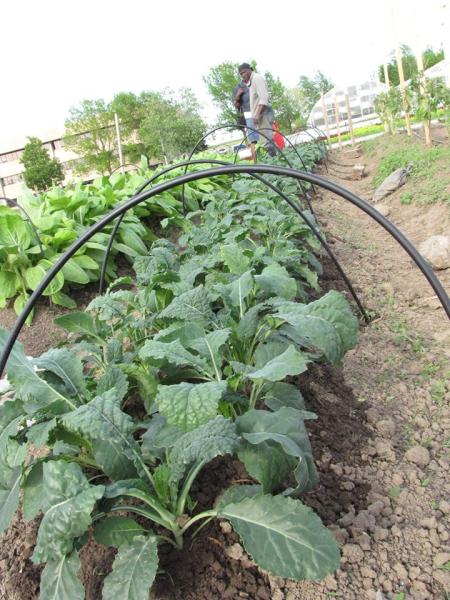
Started in 2013 by Noel Livingston and Jacqueline Dwyer, the collective provides a place for both urban farmers and gardening neophytes to share, learn, and teach. For instance, how to build raised garden beds and ways to deal with garden pests. Livingston, who came from an agricultural background in Jamaica, says Toronto's comparably short growing season has been a learning experience for him, too. "It's all different. The climate, the soil, the food." And, once the harvest is in, growers want to be able to preserve as much as possible for the winter. Dwyer says they are learning methods of preserving foods such as flash-freezing and dehydrating.
Training is an important component of workforce education, particularly in the construction trades, where apprenticeships for these good jobs can be difficult to access. According to Statistics Canada data from 2011, racialized people made up only 1.2% of all apprentices in Ontario.
One organization seeking to improve these numbers is the Toronto Community Benefits Network (TCBN). The group negotiates "benefits agreements" on large and/or public sector construction projects to ensure community members have input on projects and also benefit from the jobs created. In an interview with TVO's The Agenda, Rosemarie Powell, executive director of TCBN, said racialized people are an "untapped market that the construction industry can and should be looking at in terms of fulfilling skilled labour for communities.”
More Stories
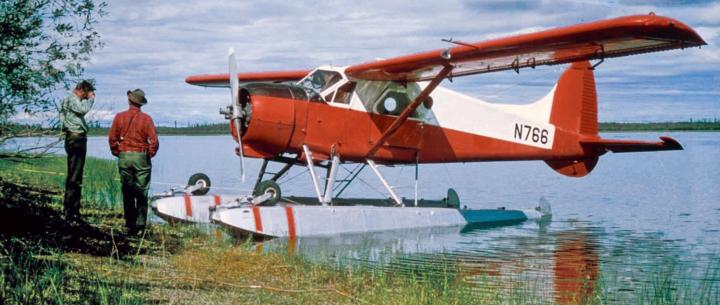
The de Havilland Beaver
Call it Downsview’s greatest gift to the world of aviation. Many successful aircraft were developed at de Havilland’s Downsview plant over the course of its fifty-year run - the Mosquito, the Tiger Moth, the Chipmunk, the Buffalo, the Twin Otter to name but a few – but arguably none had the magnitude of impact of the DHC-2 Beaver.
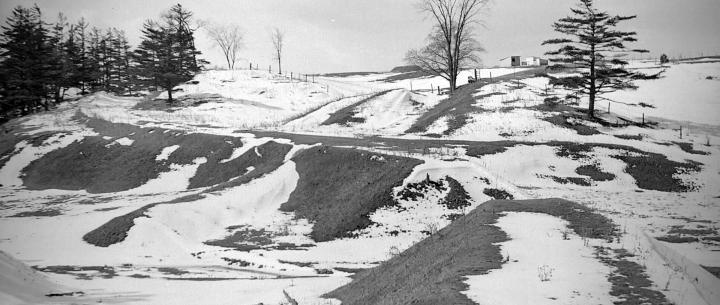
Gore Vaughn Plank Road
Getting goods to market was a constant challenge for Downsview farmers in the years before Confederation. Roads were unpaved and their carts and wagons would get bogged down in the muck when it rained or during the spring thaw.
